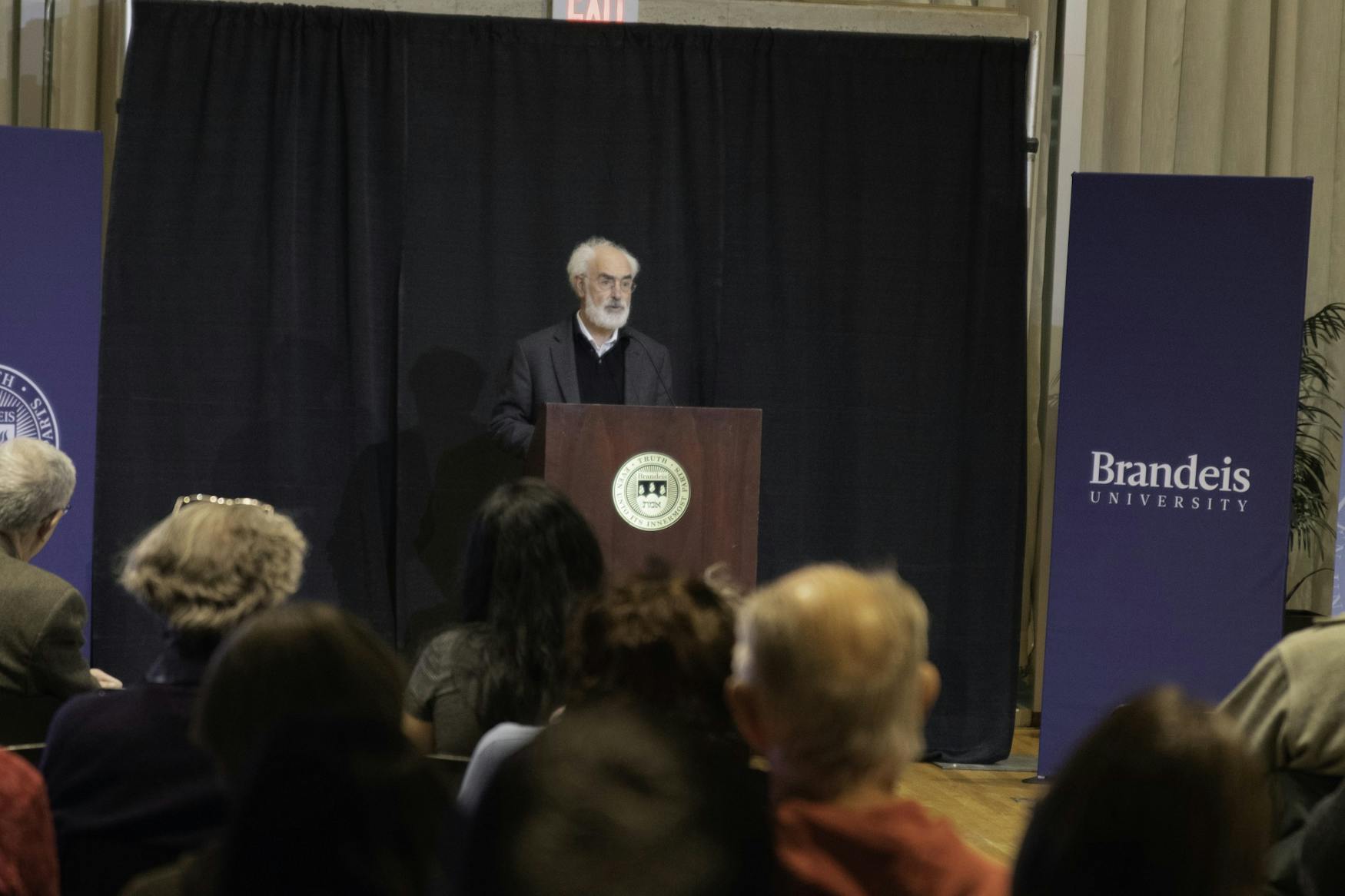The Mystic Light In Poetry
Most Hebrew speakers around the world are familiar with the work of Chaim Nachman Bialik, whether they realize it or not. Lauded as the father of modern Hebrew poetry, he has also been named the national poet of Israel, though he died before the founding of the modern State of Israel. His works span genres and languages: over the course of his life he wrote epic poems, love songs, religious verse and children’s nursery rhymes in Hebrew and Yiddish. I first became familiar with Bialik when I learned that many Israeli songs I loved were actually his poems set to music. So when I saw that there was going to be a lecture on campus about his works, I knew I had to go.
The eponymous Simon Rawidowicz lectures are named for a renowned twentieth-century Jewish philosopher and scholar. Rawidowicz served as a member of the Brandeis faculty in the early years of the University, including as chair of the Near Eastern and Judaic Studies department. The annual lecture series is hosted by the Tauber Institute for the Study of European Jewry and the NEJS department. Every year, the prestigious lecture is given by a prominent scholar of Jewish studies. This year, the Tauber Institute hosted Michael Fishbane Ph.D, ’71, the Nathan Cummings Distinguished Service Professor of Jewish Studies at the University of Chicago, to deliver a lecture titled “Natural Supernaturalism: Themes of Mystic Light and Despair in the Poetry of Chaim Nachman Bialik.”
Fishbane spoke briefly about his time as a student at Brandeis in the 1960s, where he earned his Ph.D in 1971, and how Radwidowicz’s influence on the early years of the NEJS department gave the University a similar air to the old European institutions of higher learning where Rawidowicz began his career. His discussion of Bialik mainly focused on Bialik’s religious poetry, which Fishbane considers the embodiment of the transformation of traditional Jewish sources into modern spirituality and art. Bialik, as he explained, takes the wording and themes of traditional Jewish texts, especially mystical ones, and applies them to more concrete themes of nature and the human condition. For example, Bialik uses “the light of God,” a supernatural phenomenon in Jewish texts, to refer to feelings of nostalgia. Words for mystical creatures are used in his poetry to describe natural phenomena. Hebrew is unique as a language because for nearly two millennia, it was used only as a religious language, and not in conversation. With a rise in Zionist sentiment among European Jewry in the nineteenth century, there became a push to use Hebrew as a language for conversation and secular art. A leader in this movement, Bialik had the chance to take familiar religious phrases and make them part of his humanistic poetry. This influenced many Hebrew poets to follow in his footsteps. Fishbane led the audience in a close reading of Bialik’s 1902 poem, “Lo Zakhiti Ba’Or Min Ha’Hefker” (“I Did Not Acquire Light from Abandoned Things”). This poem speaks to the hard work an artist puts into the development of his craft, and how sending his works out into the world can feel like extinguishing the flame of one’s creativity. He uses mystical language like “hidden light” and the power of words to speak of tiresome human emotion, blending religious words of ancient Hebrew with modern language and the secular experience. In Fishbane’s words, Bialik was not a traditional Jewish mystic, but a “mystic of nature” — using supernatural language to describe both the world of nature and science and the human experience.
Listening to Fishbane’s lecture gave me a new appreciation for Bialik as an artist and visionary. There was some time for audience questions at the end, and one attendee asked about how the many wars that Bialik lived through influenced his writing. Fishbane first explained that Bialik rarely ever alluded to historical events in his poetry, but after witnessing World War I and the Russian Revolution, he stopped writing lofty poems and switched to composing simple children’s rhymes for the rest of his life. Fishbane’s theory for this is that after Bialik’s long career trying to regain the wonder of youth through esoteric poetry, he learned that the best way to return to the imagination of childhood was to view the world through the eyes of the child.
This event exceeded my expectations of a biographic lecture on a well-loved poet, and enlightened me on the many layers of religious history and spiritual exploration in Bialik’s poetry. It inspired me to brush up on my Hebrew and spend more time reading his poems, and I’m glad the Tauber Institute and NEJS department brought Fishbane back to Brandeis for the day to share his expertise on this important Jewish writer.




Please note All comments are eligible for publication in The Justice.